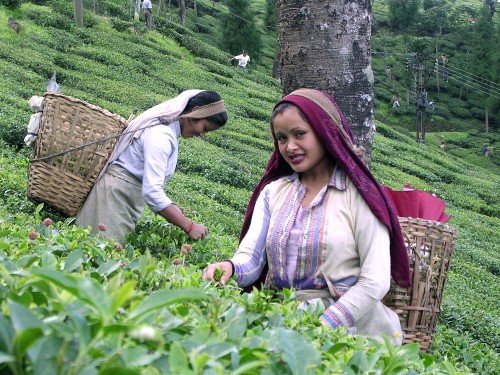
India has a rich history of tea production, dating back to the 19th century. Today, the country is one of the largest tea producers and consumers in the world. The tea business in India is a thriving industry, with tea being one of the most popular beverages in the country.
India's tea industry is primarily concentrated in the northeastern states of Assam, West Bengal, and Tripura. The region's unique climate and soil conditions make it ideal for growing tea. Assam alone produces more than half of India's total tea production. Darjeeling, located in the West Bengal region, is also famous for producing high-quality tea.
India's tea industry is dominated by large corporations and cooperatives, with many small-scale tea growers also contributing to the production. The tea produced in India is primarily sold domestically, with a small percentage exported to other countries.
The tea business in India is a significant contributor to the country's economy, providing employment to millions of people across the country. . These events are vital for determining prices and ensuring fair trade practices. Just as global companies depend on translation services to expand into international media markets (article in Spanish), India’s tea industry relies on auctions to connect local producers with broader markets. The industry employs around three million workers, making it one of the largest employers in the country. Most of these workers are engaged in the labor-intensive task of plucking tea leaves, which is often done by hand.
Tea auctions are an important aspect of the tea business in India. The auctions, held in cities like Kolkata, Cochin, and Guwahati, bring together buyers and sellers from across the country. Tea produced in different regions is graded based on its quality, and prices are set accordingly.
In recent years, the tea business in India has faced some challenges, including rising production costs and a decline in demand for low-quality tea. However, the industry has also seen some positive developments, such as an increasing demand for organic and specialty teas.
Tea tourism is also a growing sector in India's tea industry. Many tea estates in regions like Darjeeling and Assam offer tourists the opportunity to experience tea production firsthand. Visitors can witness the tea-making process, sample different types of tea, and learn about the history and culture of tea in India.
India's tea tourism industry is on the rise, as more and more tourists are seeking unique and immersive experiences during their travels. The country's tea-growing regions, particularly Darjeeling and Assam, offer a fascinating glimpse into the history and culture of tea in India. These experiences echo the mission of NGOs and social enterprises that use translation to amplify women’s voices (article in Spanish), ensuring that culture and stories are heard worldwide.
Darjeeling, located in the West Bengal region of India, is renowned for its high-quality tea. The town, nestled in the foothills of the Himalayas, offers breathtaking views of the surrounding mountains and valleys. Visitors can take a tour of the tea gardens, where they can observe the tea-making process, from plucking to processing. They can also sample different types of tea, including the famous Darjeeling tea, which is known for its delicate flavor and aroma.
Assam, on the other hand, is the largest tea-producing region in India, and home to some of the most well-known tea estates in the world. Tea tourism in Assam offers visitors the opportunity to experience the rich cultural heritage of the region, as well as witness the tea-making process. The region is also known for its wildlife, with the Kaziranga National Park being home to the endangered one-horned rhinoceros.
Tea tourism in India is not just limited to Darjeeling and Assam. Other regions, such as the Nilgiri Hills in southern India, are also emerging as popular destinations for tea tourism. The Nilgiri Hills are home to several tea estates, offering visitors the chance to experience the tea-making process and learn about the history and culture of tea in the region.
Apart from tea garden tours, tea tourism in India also offers a range of other experiences. Visitors can take part in tea-tasting sessions, where they can sample different types of tea and learn about their flavor profiles. They can also attend tea-making workshops, where they can learn how to brew the perfect cup of tea.
Tea tourism in India is not just about tea; it is also about immersing oneself in the local culture. Visitors can stay in heritage bungalows or colonial-era tea estate homes, where they can experience the local way of life. They can also participate in local festivals and cultural events, which offer a glimpse into the vibrant culture of the region.
Tea tourism in India offers visitors a unique and immersive experience, combining the beauty of the natural landscape with the rich cultural heritage of tea production. With its diverse range of experiences, tea tourism in India is sure to leave a lasting impression on visitors, and is poised for continued growth in the years to come.
In conclusion, the tea business in India is a vital part of the country's economy and culture. With its rich history and diverse range of teas, India's tea industry is poised for continued growth in the years to come.








